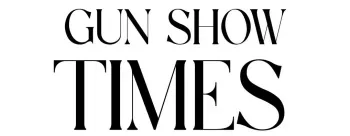The “gun show loophole” is a term widely used in discussions about firearm regulations in the United States. It refers to the legal practice, permitted in certain states, that allows private sellers to sell firearms without conducting background checks. While this is most commonly associated with gun shows, the loophole also applies to other private sales conducted outside of federally licensed firearm dealers (FFLs), such as through online listings or in-person exchanges.
This comprehensive guide explores the origins, legal framework, public safety concerns, and ongoing policy discussions surrounding the gun show loophole.
What Is the Gun Show Loophole?
Federal law mandates that FFLs conduct background checks on all firearm sales. These checks are processed through the National Instant Criminal Background Check System (NICS) to ensure that buyers are legally eligible to purchase firearms.
However, individuals who occasionally sell firearms from their personal collections—commonly referred to as private sellers—are not subject to the same federal requirements. This means they can sell firearms at gun shows or through other private transactions without running background checks or maintaining records of the sale.
The term “gun show loophole” originated because gun shows often provide a convenient setting for private sellers and buyers to meet. However, the loophole itself is not exclusive to gun shows; it applies to all private transactions in states without universal background check laws. The majority of private firearm transactions happen outside of gun shows.
The Legal Framework: State and Federal Laws
Federal law sets a baseline for firearm sales, but states have significant discretion in regulating private transactions.
- States With Universal Background Checks
Some states, such as California, Colorado, and New York, require background checks for all firearm sales, including private transactions. In these states, the gun show loophole has effectively been closed. - States Without Universal Background Checks
In many states, private sellers are not required to conduct background checks. This creates an opportunity for individuals who may otherwise be prohibited from owning firearms—such as felons or those with mental health issues—to acquire them through unregulated sales. - Mixed Approaches
Some states regulate private firearm sales to a degree but stop short of universal background checks. For example, certain states may require private sales to be conducted through an FFL, or they may mandate background checks only for handguns.
Understanding the laws in your state is critical for buyers and sellers to ensure compliance and responsible firearm ownership.
Myths and Misconceptions About the Gun Show Loophole
Myth #1: Gun Shows Are the Primary Source of Crime Guns
One of the most persistent misconceptions is that gun shows are a major source of firearms used in crimes. However, studies from organizations such as the Bureau of Alcohol, Tobacco, Firearms and Explosives (ATF) show that only a small percentage of crime guns originate from gun shows.
Myth #2: Most Gun Sales at Shows Are Private
The majority of firearms sold at gun shows are by FFLs, who must comply with federal background check requirements. Private sales at gun shows represent a smaller portion of transactions.
Myth #3: The Loophole Is Exclusive to Gun Shows
The term “gun show loophole” is somewhat misleading. The legal gap applies to all private firearm sales, not just those conducted at gun shows. Transactions facilitated through online marketplaces or personal exchanges are also included. The majority of private transactions happen outside of gun shows.
The Public Safety Debate: Supporters vs. Critics
The gun show loophole is a flashpoint in the broader debate over firearm regulations.
Arguments Supporting the Current System
- Second Amendment Protections: Advocates argue that regulating private sales infringes on individual rights and burdens law-abiding citizens.
- Limited Impact on Crime: Supporters claim that criminals rarely use gun shows as their primary source for obtaining firearms. Instead, they argue that law enforcement should focus on targeting illegal markets and enforcing existing laws.
- Enforce existing laws. This is our stance at Gun Show Times.
Arguments for Closing the Loophole
- Preventing Prohibited Purchasers: Critics contend that the lack of background checks in private sales makes it easier for individuals prohibited from owning firearms to acquire them.
- Universal Background Checks Are Popular: Polls show broad public support for universal background checks, even among gun owners. Proponents argue that closing the loophole would create a more consistent and effective system for keeping firearms out of the wrong hands.
Efforts to Address the Gun Show Loophole
- State-Level Actions
States such as Oregon, California, and Nevada have passed laws requiring universal background checks for all firearm sales, closing the gun show loophole within their borders. These laws typically mandate that private sales be conducted through an FFL, ensuring compliance with background check requirements. - Federal Legislation
Multiple attempts have been made to pass universal background check legislation at the federal level. While measures such as the Bipartisan Background Checks Act have gained traction in Congress, they have yet to be enacted due to political gridlock. - Technological Solutions
Some advocates propose using digital platforms to streamline background checks for private sales, making it easier for sellers to voluntarily ensure compliance.
Why the Gun Show Loophole Matters
The gun show loophole is a critical issue at the intersection of gun rights and public safety. It highlights the challenges of balancing individual freedoms with the need for effective measures to prevent firearm-related violence. Gun shows themselves account for only a fraction of private firearm sales.
For gun owners, understanding the legal landscape is vital for responsible and lawful firearm transactions. For policymakers, addressing the loophole requires nuanced solutions that respect constitutional rights while enhancing public safety.
